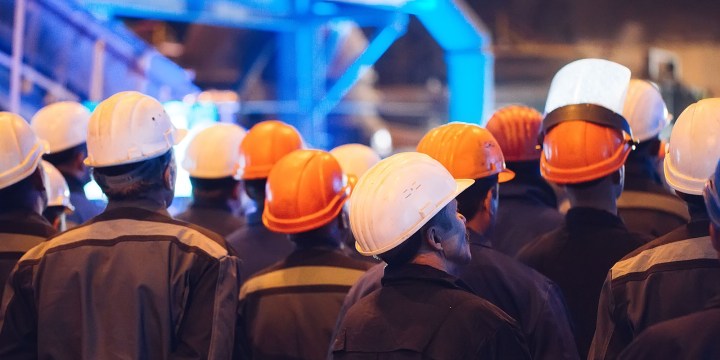BUSINESS MAVERICK OP-ED
Stranded workers: The social dimension of the carbon transition

The risk of being stuck with ‘stranded assets’ as the world shifts away from fossil fuels is well understood. Yet the possibility of ‘stranded workers’ and ‘stranded communities’ from the same transition is only now starting to get the attention it deserves.
The need for a strong social dimension to climate policy has been on display for much of this year on the streets of France as the gilets jaunes have protested against French President Macron’s increase in fuel taxes. Macron’s fuel tax was structured as a flat tax, thereby hitting the poor hardest. The resulting anger also has a strong geographic dimension, as suburban and rural residents were hit harder given the paucity of public transport relative to densely populated urban cities.
The tug between social and environmental goals is hardly unique to France. In the UK context, research from the IPPR suggested that approximately 28,000 jobs in coal, oil, and gas industries could be lost in the north of England by 2020. These numbers are insignificant when compared to the challenge in a country like South Africa, where more than 100,000 people are employed in the extractive industries and electricity generation, and where unemployment is around 27%. The energy transition is now well understood; our thinking must now focus on the just transition.
Engaging with notions of fairness is not a luxury. It is, in fact, essential if the carbon transition is to happen at all. In this sense, framing the issue as a conflict between social and environmental goals is entirely the wrong approach because it seems to assume antagonism as permanent. In fact, if workers involved in fossil fuel industries are trained and absorbed into the renewable energy sector, and affected consumers are brought along, the process of decarbonisation will accelerate. Most people are not against a carbon transition; they are against one that leaves them behind.
The shift away from carbon is not the first major economic transition we have faced nor will it be the last. There are good models for how to mitigate these necessary economic shifts. The deindustrialisation that began in the 1980s is the most significant in recent memory, but the biggest transition in today’s advanced economies prior to that was the decline of agriculture between the 1880s and the mid-20th century in western Europe and the US.
That decline precipitated the impoverishment of farmers, who were overindebted, and who then gravitated towards radical politics in a number of Western economies. Think of the rise of three-time Democratic Party presidential nominee William Jennings Bryan in the United States or the Popular Front leader Leon Blum, elected in 1936.
A key part of the government response to falling agricultural prices was to put a price floor under farm products. The US did this as part of the New Deal’s Agricultural Adjustment Act. In Europe, the response took longer but was more comprehensive. The European Economic Area’s Common Agricultural Policy (CAP) set prices for farmers and offered an elaborate system of subsidies—and still exists today.
While sometimes maligned, the CAP solved the most contentious distributional issue in European politics. That policy allowed the gradual shrinking of agricultural employment in a relatively consensual and cooperative fashion, thereby underpinning the modernisation of European economies.
As economic historian Harold James has pointed out, for France, agriculture accounted for 42.2% of employment in 1900, and still, at the beginning of the EEC in 1958, stood at 22%. It is today 2.8%, as it has roughly been since 2010. For Germany, the equivalent figures are 33.8, 16.1, and 1.6%; and for Italy 58.7, 32.9 and 4%. A decline of that magnitude could have been contentious, but forward-thinking government policy ensured that it was not.
In today’s context, a “just transition” means improving the coherence of training and education policy, boosting employment protection and most importantly, making sure the overall policy package is deemed fair by the public.
Investors can help this process along in three ways. They can integrate decarbonisation and social considerations into their mainstream analysis. They can explicitly engage with companies on how they plan to reconcile conflicting environmental and social goals. Moreover, they can focus on companies that, through driving positive change, will see significant structural growth in the carbon transition.
The idea of a just transition is moving into the mainstream, especially as policymakers and markets begin to grapple with the challenges posed by both decarbonisation and populism. The only question for investors is whether they draw the relevant lessons from the debate today, or whether they are compelled to do so by laws or social circumstances at a later date. In a sense, the debate around “stranded assets” should be broadened to reflect the risk of “stranded investors.” BM
Tom Nelson is Head of Natural Resources at Investec Asset Management (UK) and Sahik Mahtani is Strategist at Investec Asset Management (UK)


















 Become an Insider
Become an Insider